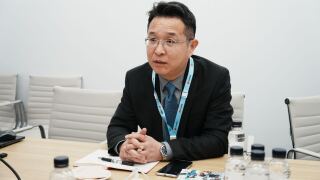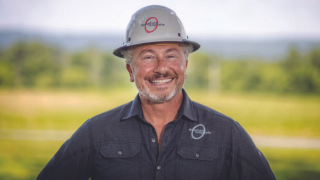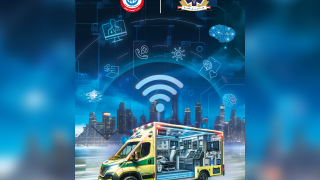One of Brian Fitzpatrick’s first ever responsibilities after he joined Vodafone Carrier Services was to hop on a plane to Chicago for ITW. The year was 2013 and Fitzpatrick, now CEO at VCS, was an industry veteran, having previously spent six years overseeing BT’s wholesale unit. He’d also held senior management roles with Teleglobe, later bought by Tata Communications, and Frontier Communications, bought by Global Crossing.
“It helps us tremendously [in the voice market] because not only can we originate calls in our handsets around the world but also some of the key corridors for termination like in India we happen to operate the operating company in those countries. So we’re well positioned from an origination perspective but also quite uniquely positioned from a termination perspective.”
In the messaging market, Vodafone Carrier Services has also established a centralised platform it calls VMH – Vodafone Messaging Hub. This, along with investments in Rich Communi-cations Services (RCS), will give Vodafone a strong position to lead and sustain growth in the sector.
“The RCS capability enhances messaging. It makes it sexier,” Fitzpatrick explains. “I can only see the upside. IoT is going to enable thousands of things we’re not aware of today and messaging will be one of them, as will RCS.”
Infrastructure investments
Vodafone has ownership in some 83 subsea cable systems around the world and has continued to invest in several systems since VCS was founded, including the Bay of Bengal Gateway cable that links India to the Middle East and Singapore and the Tasman Global Access (TGA) cable which connects New Zealand to Australia.
“While others are turning back on investing in subsea cables, we’ve been heavily involved in seven new systems around the world over the last five years,” Fitzpatrick says.
A lot of recent cables have been announced: why does he think that is? “There is definitely a new dynamic happening. As you begin to look at new builds, you look at how they interconnects with your existing infrastructure. Any new build will enhance what we already have.”
He expects the company to “actively be involved in cable systems in the area around Africa”, adding that it is also looking at three or four other areas.
This comes back to OTTs: “It is the perfect marriage of organisations – traditional telcos and OTTs coming together, as opposed to acting as enemies. The OTTs can act as an anchor tenant on these cable systems while the telcos take much more of a lead on the management, regulatory and technical expertise.”
Some of the existing Vodafone capacity is on fairly aged systems that will, ultimately, be switched off in the coming years. What does a company like Vodafone do to prepare for this? He answers enthusiastically: “We actively have a migration and grooming strategy. We’re looking at our existing facilities and whether existing alternatives that are timed to come up with retiring that facility. Or whether it makes sense for us to partner and build a new cable along those corridors.” So with new investments in infrastructure on the horizon, and a bright future for RCS, what does Fitzpatrick expect for the next five years for VCS?
He answers: “We think in those three legs of the stool – voice, messaging and infrastructure. From a voice perspective I think you’ll see Vodafone continuing to invest and focus on our intelligent routing platform and optimise its capabilities. What we have also done is outsourced 26 operating companies onto a single platform and optimised and created greater value for all of them.”
This, he adds, opens up opportunities for working with others to get them on board with the voice platform in order to create an even wider alliance. This reminds me of other interoperability trials being carried out in the industry, such as SDN trials being carried out by several firms.
“It is probably a bit premature to look at interoperability tie ups like SDN, but on the voice side it presents us an opportunity to open it up more,” says Fitzpatrick. “We know the complexities we had to go through ourselves on a global level. It is something we’re kicking around now to see if we should proactively engage.”




